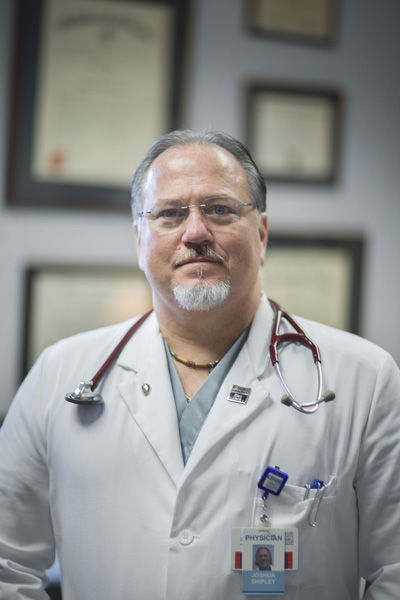We bet everyone reading this knows about gastroesophageal reflux; commonly known as acid reflux. It happens when stomach acid flows backward, from the stomach into the esophagus (the tube that connects the stomach and the throat). Its symptoms are unpleasant – heartburn, the taste of regurgitated food or sour acid in the back of your mouth, difficulty swallowing, perhaps coughing and wheezing. This form of reflux can progress to gastroesophageal reflux disease (GERD), which has the same symptoms, occurring more frequently.
There is another form of reflux that is well known to those who suffer from it – and to physicians like Dr. Joshua Shipley, an internist with Primary Care of the Treasure Coast, who treat it – but perhaps not to the general public. It’s called laryngopharyngeal reflux (LPR).
There are rings of muscle, called sphincters, at either end of the esophagus; they are designed to keep the contents of the stomach in the stomach. In LPR, these rings of muscle don’t function properly, resulting in stomach acid flowing into the back of the throat (pharynx), the voice box (larynx) or even the nasal airways. The cause of the dysfunction of these sphincters is not known.
LPR is sometimes referred to as “silent reflux” because most sufferers don’t have the heartburn characteristic of gastroesophageal reflux. However, those who have it don’t think of it as silent – typical symptoms include excessive throat clearing, persistent cough, hoarseness, throat pain and a sensation of choking.
The throat and voice box have no natural protection against stomach acid. When it pools in those areas, long-term damage, irritation, and scarring can result. Untreated, LPR can worsen conditions such as asthma, emphysema, and bronchitis; it can also lead to Barrett’s esophagus, in which the lining of the esophagus changes to resemble the lining of the intestines; in rare cases, Barrett’s can lead to cancer of the esophagus.
When suspected, LPR is diagnosed through a medical history, physical exam, and tests; the most common of which are:
• Endoscopic exam. A long tube is inserted into the nose or throat; attached to the tube is a camera, which allows the throat and vocal chords to be viewed.
• pH monitoring. A small catheter is placed through the nose into the throat and esophagus; it has sensors that detect acid. A small computer worn at the waist records acid levels over a 24-hour period.
LPR can occur at any age, even in infants; but it becomes more common with age.
Dr. Shipley sees many cases of LPR in his practice. He says, “the mainstays of treatment are proton pump inhibitors, such as Nexium, Prevacid and Prilosec, H2 blockers such as ranitidine, and antacids, such as Tums.”
In conjunction with medication, lifestyle changes often are essential to combat LPR. If you believe what you read on the internet, these changes seem almost impossible to enact and maintain, as the list of what to avoid is quite extensive – acidic, spicy, or fatty foods, alcohol, tobacco, caffeine, chocolate and mint or mint-flavored foods. That doesn’t leave much other than a bland and very uninteresting diet. Dr. Shipley believes that “there is no consensus data on diets; most doctors recommend avoiding foods that make symptoms worse, rather than certain foods in general.”
Those who suffer from LPR should never eat less than 2 hours before lying down, whether it’s bedtime or laying on the couch to watch TV. Other precautions include not wearing clothing that is tight at the waist and avoiding excessive stress.
In the category of what to do rather than not do – maintain a healthy weight, chew gum to increase saliva and neutralize acid, and elevate the head of your bed 4-6 inches.
If LPR does not respond to medication and lifestyle changes, there is a surgical option called fundoplication. In this surgery, which is usually done laparoscopically, the upper part of the stomach is wrapped around the esophagus to create a stronger valve between the stomach and esophagus.
According to Dr. Shipley, “surgery is rarely indicated, and there is limited data to show significant relief from surgery.” This is good news for LPR sufferers, as it points to the fact that medication and patient-specific diet modifications work well to control the condition.
Primary Care of the Treasure Coast is located at 1265 36th Street in Vero Beach; the phone number is 772-567-6340.

